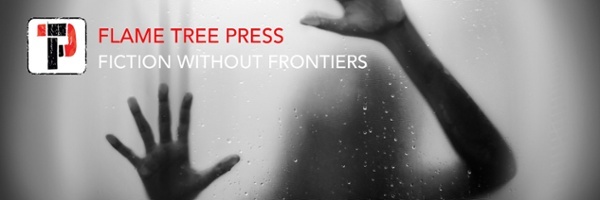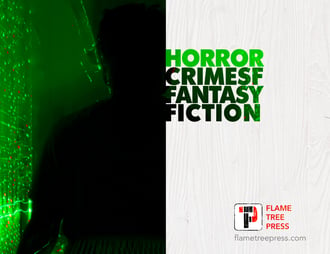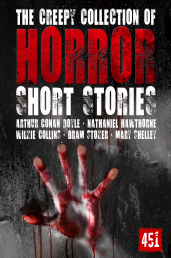To celebrate the UK release of Think Your Self Lucky from Ramsey Campbell we thought we’d post a Q&A with the man himself. Learn about the book, his advice for writers and why he writes horror in the first of our blogs for the UK release of Campbell’s Think Your Self Lucky and Night Shift by Robin Triggs.

I suppose the first question to ask is what is the book about?
David Botham just wants a quiet ordinary life—his job at the travel agency, his relationship with his girlfriend Stephanie. The online blog that uses a title he once thought up has nothing to do with him. He has no idea who is writing it or where they get their information about a series of violent deaths in Liverpool. If they’re murders, how can the killer go unseen even by security cameras? Perhaps David won’t know until they come too close to him—until he can’t ignore the figure from his past that is catching up with him…
What would you say are the underlying themes?
Fundamentally, the internet as a place that sets loose our buried personalities and looses monsters on the world.
That’s a really interesting subject for our time. Did you base your characters on anyone you know or people you’ve seen?
All my characters are based on observation to some extent, but a character is very rarely drawn from a single real person. It’s more a matter of assembling a new person from traits borrowed from many, and some imagined traits too. What’s most important, especially in a story such as this one that deals with the supernatural, is that the characters should behave as real people might conceivably behave.
Why did you choose to write horror?
Because I’ve always loved the field. I started writing in it to pay back some of the pleasure it has given me and in the hope of adding a little of my own to it. Some of its greatest tales – Algernon Blackwood’s “The Willows”, Arthur Machen’s “The White People”, Lovecraft’s “The Colour out of Space” – ,reach towards awe, and that’s my ambition, however much I may fall short of it.
For people who are just starting out, either in horror or any other genre, Is there any advice you can give them?
Don’t despair, even when your work is rejected. Keep writing, and don’t leave work unfinished. Learn to enjoy rewriting as soon as you can – every piece of work needs it, believe me. Tell as much of the truth as you can. Always compose at least the first sentence before you sit down to write. Identify your most creative time to write and, if you can, work then – if not, try at least to write some of your new piece every day until it’s finished.
That’s interesting that you mention writing at a specific time, do you have a particular space you like to write in?
I’m up at my desk that looks towards Liverpool across the river, and I always see the dawn when I’m working here. Some writers prefer to face a wall so as not to be distracted, but I believe I draw energy from the view, not least the ever-changing sky.
You mentioned learning to enjoy re-writing. Do you find it hard to write and do you enjoy editing your work?
I haven’t plotted a novel in advance for many years – I gather material until the book feels ready to be started. I believe in letting the tale develop organically and surprise me as it does. The dark side of this is that I can find myself stranded far out in unknown territory with no idea how to proceed, but I trust the novel to rescue me – generally there’s material earlier on that proves to be the solution to where I need to go next in the story. It certainly can be hard to write, but more often it’s rewarding, even exhilarating. I’ve come to regard the first draft as a way of setting out what I need to work with. I’m increasingly ruthless at rewriting and enjoy it a good deal.
You’ve been writing horror fiction for more than half a century. Do you ever run out of material?
Not while I live and perhaps not even beyond that. I’ve notebooks full of ideas waiting for development. I believe the field is so wide I’ve by no means found its limits (by which I don’t mean excessiveness, but its ability to contain a great deal). The uncanny, the psychological, cosmic terror, social comment, comedy of paranoia, the monstrous both human and inhuman – they’re all in there, and more.
I’m sure there are some people that would ask “Isn’t there enough horror in the world without creating it”?
Wouldn’t we say there’s enough crime in the world, and enough tragedy? Yet I’ve never heard those observations used as an argument that people should stop writing crime fiction or tragedies. For that matter, since there is indeed horror in the world, how could some art not reflect that? It’s also true that much horror fiction, whether supernatural or psychological, deals with a different kind than the horror in the news, though some of the fiction does indeed confront everyday experience.

Thank you to Ramsey Campbell for this Q&A! His latest Flame Tree Press release will be available form the 15th of November in the UK and later in the month in the US and rest of the world. Think Your Self Lucky is available in paperback, hardback, audio book and ebook. Check out our website for details.
Born in Liverpool in 1946, Ramsey Campbell still lives in Merseyside today. He has received more awards than any other writer in the field, including the Grand Master Award of the World Horror Convention, the Lifetime achievement Award of the Horror Writers Association, the Living Legend Award of the International Horror Guild, and the World Fantasy Lifetime Achievement Award. He was also made an honorary Fellow of Liverpool John Moores University for his services to literature.
Check out all of the UK November Release blog posts!
- Flame Tree Press | UK November Release | 1 | Ramsey Campbell Q&A
- Flame Tree Press | UK November Release | 2 | Robin Triggs Q&A
- Flame Tree Press | UK November Release | 3 | Upcoming Titles




